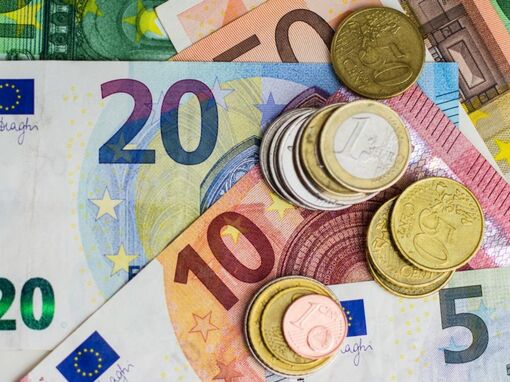Get your Passports ready! Consider this an official guide to our wedding day. A place to find accommodation recommendations, travel instructions, the itinerary and more. We can't wait to celebrate with you!

Amanda & Marcus
Get your Passports ready! Consider this an official guide to our wedding day. A place to find accommodation recommendations, travel instructions, the itinerary and more. We can't wait to celebrate with you!
Amanda & Marcus
Currency
Currency
Euro (Republic of Ireland) & Pound Sterling (Northern Ireland)

Because banking is a pain in the arse.

Free Standard Plan! Typically takes 9 business days to deliver your physical card. You can still start spending and moving money straight away. Your revolut account automatically allows you to get a virtual card.
When travelling, regular banks can be expensive and cumbersome. Awful exchange rates, ridiculous fees, and if you forget to let your bank know your card might even get blocked.
Marcus and I have been using Revolut for a few years now, both at home and while traveling.
Revolut calls themselves an electronic money institution. It's your financial partner. They launched in 2015 and have over 40 million users.
With Revolut, you will get a contactless debit card and a really user-friendly app. But best of all, you'll get massive savings on fees when spending, withdrawing, and sending money abroad.
You can easily top up your Revolut account from your regular bank account either through online banking or by making a "payment" with your debit card. Once you have money on your account, you can go ahead and spend or withdraw money with your Revolut card around the world for FREE!
Revolut allows you to set up "accounts" (kind of like wallets) with up to 29 different currencies. Or, if you'd rather not have to worry about keeping track of different wallets, you can simply spend and withdraw money and have it come straight out of your "main" account, whether that be in euro or dollars.
All you'll be charged is the real-time foreign exchange rate and a small fee on weekends.
You can see your spending by category, merchant, and country.
If your friends have Revolut too, you can easily and quickly (instantly, really) transfer money between you. The "Split the Bill" function is awesome, and allows one of you to pay the full bill and then split between your group evenly. Perfect for a night out!
You can even set a budget for various categories to help you control where you're spending money.
Other Options
Currency: You can exchange money before traveling at banks or currency exchange locations. You can use your debit card at Irish Banks to withdraw euro.
Credit & Debit: Most US debit and credit cards are widely accepted in Ireland, including Visa, Mastercard, and American Express. Discover is not often accepted.
** You should notify your bank before traveling so they don't block transactions in foreign countries.
** Be aware of fees for cash advances and foreign transactions, such as currency conversion fees, point of sale purchase fees, and cash withdrawal commission charges.
Should I buy lots of euro before leaving?
Why is using an ATM the best way to get money in Ireland?
Should I bring cash to exchange?
What do we usually do?
Using your credit card in Ireland
Dynamic Currency Conversion
Money in Northern Ireland
Other names for euro
Drink vouchers
Bob
Quid
Yo-Yo's
Other names for ATM's
Drink Link
Pass machine
Hole in the wall